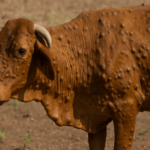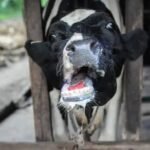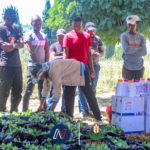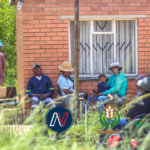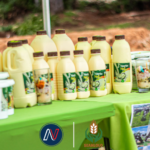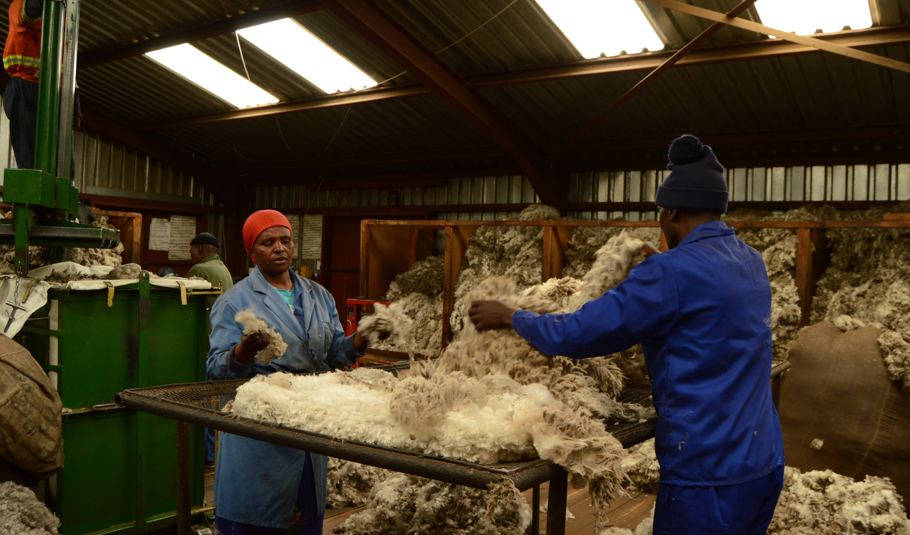From 1 September, all import and export permit applications for animal products and fibre will be processed by the Lesotho National Single Window (LNSW), this was revealed during a recent stakeholder meeting on 29 May 2025.
The digital permit system, introduced by the Government of Lesotho with funding from CAFI, aims to eliminate the paper-based process and replace it with an efficient, secure online platform.
Coordinated by the Ministry of Agriculture, Food Security and Nutrition, the system was unveiled to wool and mohair traders, brokers, and other stakeholders in Maseru.
“This new platform will drastically improve how farmers and brokers access services,” project coordinator, ’Makali Lepholisa said noting that the manual application process was tiring, costly, and exposed farmers produce to damage or loss.
“With the LNSW, you no longer need to travel long distances to apply. All you need is a smartphone, internet access, your ID, email address, and a Tax Identification Number (TIN),” she explained.
She revealed that registration is already open, and applicants can upload required documents such as tax clearances and invoices.
Lepholisa noted that once applications are submitted, the Revenue Services Lesotho (RSL), which hosts and processes the platform, will communicate directly with users if any corrections or additional documents are needed.
“The system is available 24/7 and you can apply from anywhere. Once your application is approved, you can download or print your permit without ever stepping into an office,” Lepholisa said.
She further explained that the system’s user authentication feature saves applicants’ information during registration, which eliminates the need to re-enter the same details for future applications.
“It is secure, efficient, and farmer-friendly. Only the registered user can access their account unless they share their password.”
While primarily designed for traders and brokers, the platform is also open to researchers, statisticians, and others stakeholders interested in trade data.
“This platform offers access to information on what types of commodities Lesotho exports or imports, supporting transparency across the food supply chain,” said Lepholisa.
The LNSW was initially launched in 2021, and its current expansion now includes integration with key government entities such as the Livestock Department, Department of Marketing, Dairy Board, and the Department of Agriculture Research. The platform’s development follows recommendations from the National Trade Facilitation Committee under the WTO (World Trade Organisation) and enjoys technical support from the World Bank.
Despite broad support, several stakeholders expressed concerns about the practicality of the system’s implementation.
OVK Country Manager Seelan Pillay acknowledged the innovation but said challenges remain regarding cross-border compliance.
“As brokers, we apply for a master permit from Pretoria, which requires a physical stamp from the Ministry, if South African authorities don’t accept digital signatures, it could cause major delays. While we have been assured that a digital signature will be used, we will still have to wait and see if that is acceptable to the South African Revenue Service,” Pillay charged.
(he/she?) Pillay also raised concerns about digital literacy noting most of (his/her) my clients are not good with paperwork, and some struggle with technology.
“It is my hope that they adapt quickly, but that remains my main concern.”
BKB Coordinator Khauhelo Kheethoa echoed Pillay’s sentiment, warning that the rollout may be premature.
“There are gaps in the system that are going to make traders suffer. I am a broker, and when my clients suffer, I suffer. It seems like no cost-benefit analysis was done.”
“What happens when SARS wants paperwork and not QR codes? Or if the system fails? What if the permit isn’t produced and released on time?”
Kheethoa added; “Does the system comply with Lesotho’s wool and mohair legislation? I believe more engagement with South African stakeholders should have taken place before shutting down the manual process.”
Responding to the concerns, Lepholisa assured that more engagements were planned in the coming weeks.
“We still have three months to address stakeholder issues, update the system, and ensure a smooth transition. Clearing agents will also be sensitised, and discussions with SARS and South African brokers are also on the agenda,” she said.
Marketing consultants on the other hand expressed optimism, “This system brings logistical convenience and will save us a lot of money. We just need to support farmers and ensure that no one is left behind with this digital transformation.”
Lead veterinarian, Dr. Tabitha Seeiso, highlighted the system’s role in controlling illegal trade, especially during disease outbreaks.
“Once we declare a disease in a specific zone, the system will reject permit applications to import or export related commodities. This is critical for national biosecurity,” she explained.
She also warned about traders falsifying names on permit applications.
“Some people use one name to export fibre at the Lesotho border and another name once it enters South Africa, especially in places like Queenstown where we have no formal certification agreement. That’s illegal, and the system will help control and even stop that practice,” she said.
Lepholisa further clarified that permits issued through the system will remain valid for 30 days while annual user registration is required only once.
She noted that while the system may go offline for scheduled maintenance, a technical support team based at the RSL training centre would be readily available to assist users.
The LNSW is fully aligned with Southern African Development Community (SADC) and World Trade Organisation (WTO) trade facilitation protocols. According to the World Bank’s Doing Business 2020 report, implementing single-window systems can reduce export processing times by up to 50%, offering significant savings to traders and governments alike.

